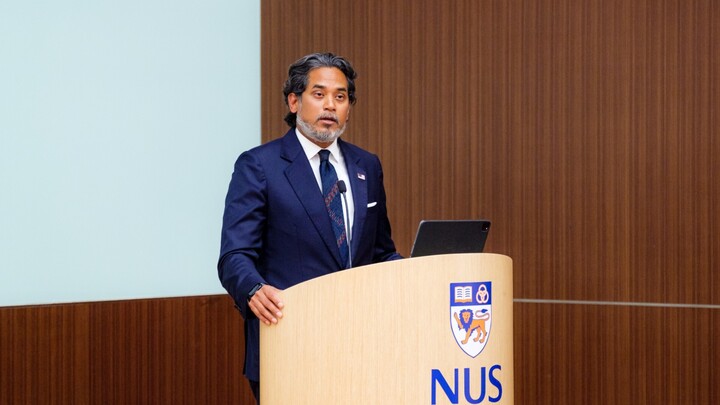KUALA LUMPUR, June 8 – Khairy Jamaluddin expects another pandemic in the near future, calling for reforms to health care systems that were severely strained by the global Covid-19 public health crisis.
The health minister, when speaking at the Public Health Thought Leadership Dialogue last June 2 that was organised by the National University of Singapore’s (NUS) Saw Swee Hock School of Public Health, highlighted that urbanisation, climate change, and global connectivity could increase the spread of zoonoses, or infectious diseases spread between animals and people like Covid-19, SARS, and MERS.
“The question of another global pandemic in the foreseeable future is not a matter of if, but rather when,” Khairy was quoted saying in a write-up by NUS on the June 2 dialogue in Singapore that focused on how countries can future-proof their public health care systems.
“The systems we have today are arguably stuck in paradigms of past models, population profiles, or ways of working that no longer serve us.
“For countries like Singapore and Malaysia, there is also another worry besides acute pandemics: ageing populations. With non-communicable diseases such as diabetes and cancers becoming more prevalent in older adults, meeting these changing demands is another reason why health care systems need to be reviewed.
“We need to build back better… towards a resilient health system that is capable of absorbing shocks such as public health emergencies or managing demographic challenges like an ageing population.”
At the NUS dialogue, Khairy called for four key areas of reform.
First, the health minister called for strong public-private partnerships to ensure equitable quality and efficient basic health care delivery for all.
Khairy cited how the government transferred non-Covid patients to private hospitals during the height of Malaysia’s Covid-19 epidemic last year.
Second, Khairy said that it is necessary to increase health care financing in Malaysia – a controversial topic that previous governments have struggled with, such as the Najib administration that failed to introduce social health insurance due to intense public pushback.
Khairy reportedly said the Malaysian government is currently engaged in “serious” discussions to raise spending on the public health care system after years of chronic underfunding.
He did not specify at the NUS dialogue if he would propose a social health insurance scheme to diversify financing sources for the public health care system amid limited taxpayer revenue; MOH facilities are currently funded by general taxation solely.
Prime Minister Ismail Sabri Yaakob recently cited the possibility of reinstating the unpopular goods and services tax (GST), but said the government has not made a decision on this yet.
Despite the severity of the Covid-19 pandemic that overwhelmed the public health care system in the commercial region of the Klang Valley in the middle of 2021, the government merely allocated RM32.4 billion for the Ministry of Health (MOH) in the 2022 budget, a meagre 1.5 per cent increase from the 2021 budget.
Although some advocates want the government to slash defence spending to increase health budgets, the Defence Ministry only received RM16.1 billion in the 2022 budget, a nominal 1.8 per cent increase from the previous year, compared to MOH’s RM32.4 billion allocation and RM52.6 billion for the Education Ministry, the largest allocation at 16 per cent of the total RM332.1 billion federal budget.
“The Covid-19 pandemic has lifted the veil and shown the true human cost of not resolving this issue,” Khairy told NUS.
Third, Khairy urged countries to pivot from a curative approach to preventive health care.
“We need to genuinely bring health back into health care. Right now, it is more ‘sickcare’.”
Fourth, Khairy called for mechanisms of accountability and governance of wide-ranging reforms and increased spending on health.
The health minister said his proposed independent health reform commission – which will be tasked to monitor, advise, and report on the status of the implementation of proposed reforms to the government and the Malaysian public – would “help inject institutional checks and balances”.
MOH plays multiple and sometimes conflicting roles as health care provider and regulator of the dual health care system that comprises public health care facilities under the MOH and university hospitals under the Higher Education Ministry, as well as private health care facilities.
For example, a law that regulates the safety and operations of health care facilities – the Private Healthcare Facilities and Services Act 1988 – only applies to private health care facilities.
Khairy intends to table a White Paper on health care reform – which will propose solutions in phases across 15 years in the areas of service delivery, financing, governance, and organisation – in Parliament in November.
However, the White Paper and the proposed Health Reform Commission that will be tasked to implement the reforms proposed in the document may not come to fruition if a general election is held within the next few months as widely speculated.








